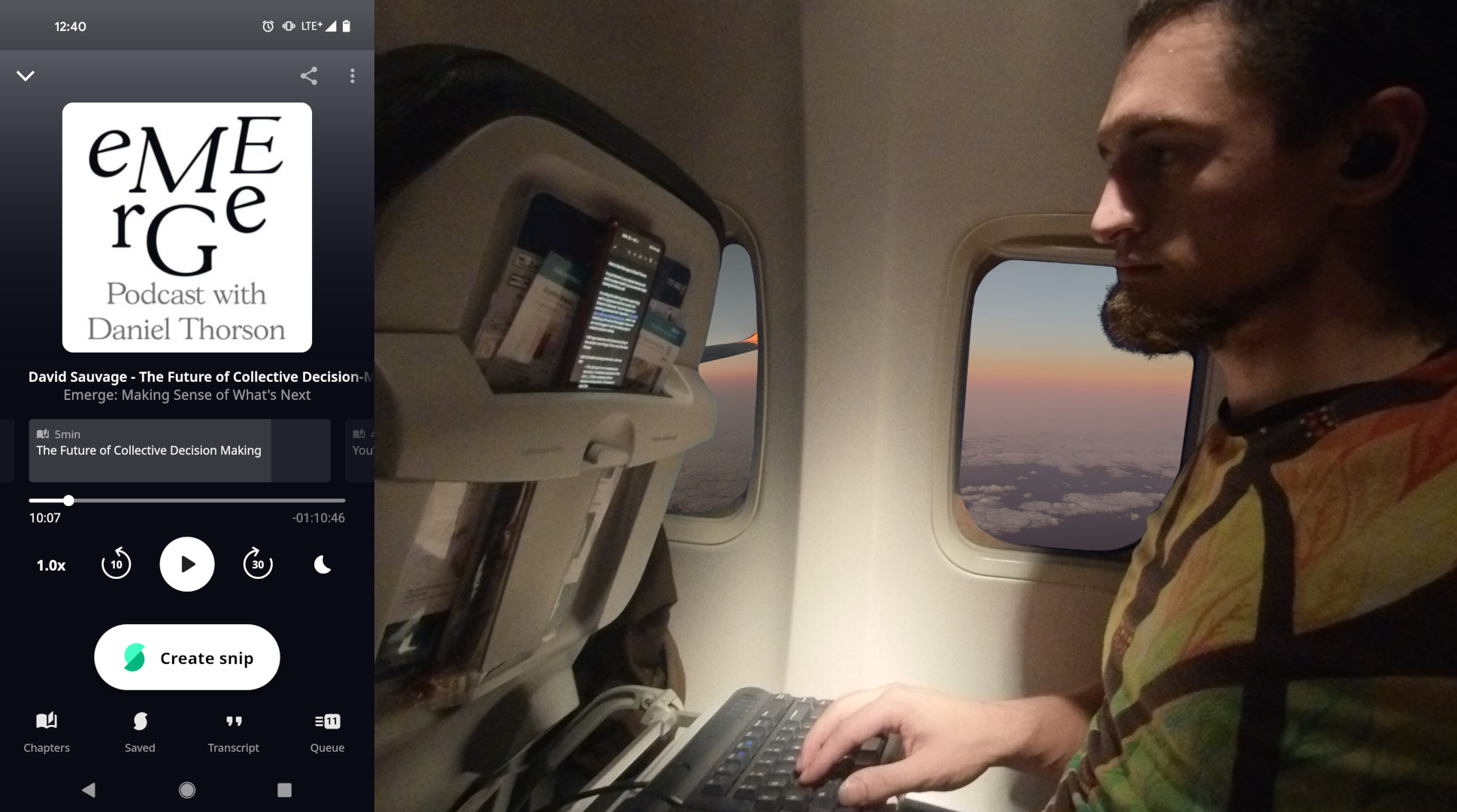Hello to David Sauvage (cc Daniel Thorson)
I’ve just listened to your podcast interview and want to expose myself to you as someone deeply tracking the field as well.
I’m writing this letter to you from a plane flying west in a gorgeous multi-hour sunset, from Ontario to Vancouver. I’ve just wrapped up a weeklong adventure that I described in this other open letter as a meta-protocol jam, where I was interfacing with some of the people I know who are most plugged in with the leading edge of collective decision-making.

I felt huge resonance with almost everything in the podcast, even though I know very little about Occupy.
Lots of possible starting points here. Let’s use this:
The right goal is not consensus but resonance. A collective experience of the truth.
When consensus-driven decision-making works, it’s because it does this.
Absolutely. How this occurs to me is that the key difference is: consensus is allowed to be hard-blocked by dissociated narrowly-fixated left hemisphere stuff, whereas a resonance-oriented approach refuses to stop there. Though those views still need to be integrated! And there’s a huge puzzle on how to do that without losing your own view, which I’ve been investigating with my Non Naive Trust Dance framework! And I’m seeing how the moves I’ve been encouraging people to make as part of that, of naming “I can’t trust X” or “I can’t rest at ease with X”, partially helps people actually get more subjective & embodied, and to open to uncertainty.
A lot to unpack there. My NNTD framework is something I’ve developed for orienting to the creation of intersubjective truth, starting from subjective truth. One lens I have on trust is “trust is what truth feels like from the inside”. Simultaneously, trusting something means being able to be at ease in relation to it. Sometimes we generate this ease in a naive way, by suppressing our concerns, but this is unstable—when those concerns re-arise, they then disrupt apparent group consensus or even apparent resonance that was existing in denial of the concerns. As I’m articulating that right now, in relation to what I just listened to, I’m feeling the inherent relationship between truth and values—what is deeply right for us (our subjective values) aren’t arbitrary.
It seems to me that we don’t choose them so much as discover them. We discover the tradeoffs we truly want to make, and then it doesn’t even feel like a sacrifice. So the decision-making process that you outlined is one of mutual/collective discovery of what we in fact deeply want once all perspectives are heard.
» read the rest of this entry »